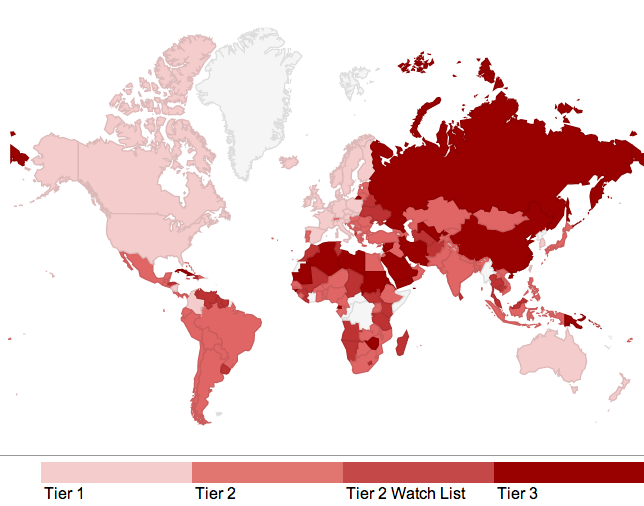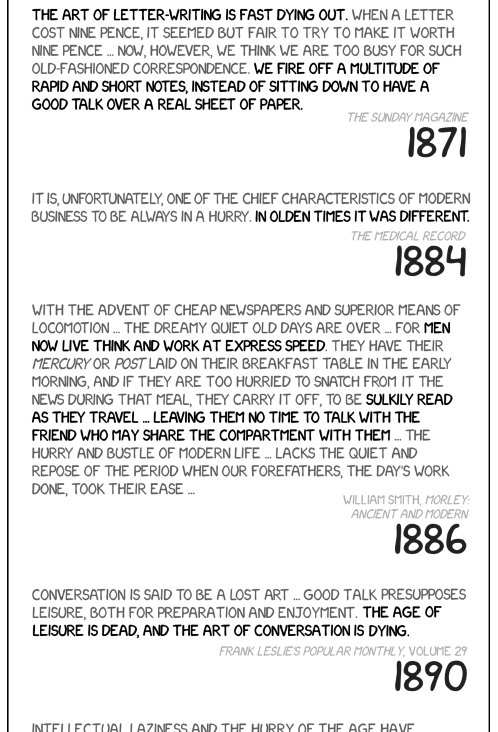Willard Foxton says that the real problem is that the two “sides” of the argument are not even talking the same language:
Claire Perry, the Prime Minister’s “special adviser on preventing the sexualisation and commercialisation of childhood”, has three demands which she claims will save the world from the horrors of porn. First, that internet service providers and other internet companies block child pornography at its source; second, that any sort of simulated rape pornography is banned; and third, that pornography is banned from public WiFi.
On the face of it, these all seem like reasonable demands. I mean, if you oppose them, you must be some kind of filth peddler or mad porn obsessive, right? Or you might just be a person who understands how the internet works, and therein lies the problem. Let’s tackle Perry’s demands one by one and explain, patiently, why she is wrong.
Firstly, her request that internet service providers block images of child abuse “at their source”. It sounds perfectly reasonable, doesn’t it? Indeed, it’s so reasonable that they already do, and indeed have been doing since 2007. It’s done through a system called Cleanfeed, which is a rare example of a British state-funded IT project that works like a charm. They way it works is, any time a website is reported as illegal to the police, it’s added to a list. Any sites on that list are inaccessible from British ISPs. It’s a very secure system, and very hard to work around – it works so well that we’ve exported it to Canada and Australia.
Perry also wants Google to “do more” to block child porn. As I’ve said before on these pages, Google (and other large search providers), already have enormous departments devoted to blocking it, with thousands of employees checking YouTube for offensive images. On top of that, very little of the material that so offends Perry is available though a simple Google search; most of the illegal stuff is hidden in Internet Relay Chat file servers or on the dark web, accessible only via anonymising browsers like Tor.
Update: At Techdirt, Tim Cushing addresses the common claim by grandstanding politicians that child pornography is easy to “stumble upon”:
How hard would it be to access child porn if you weren’t looking for it specifically? The Ministry of Truth puts your odds at 1 in 2.6 million searches. (MoT points out the odds will fluctuate depending on search terms used, but for the most part, it’s not the sort of thing someone unwittingly stumbles upon.)
All those demanding Google do more to block child porn fail to realize there’s not much more it can do. The UK already has an underlying blocking system filtering out illegal images at the ISP level, and Google itself runs its own blocker as well.
The above calculations should put the child porn “epidemic” in perspective. As far as the web that Google actively “controls,” it’s doing about as much as it can to keep child porn and internet users separated. There are millions of pages Google can’t or doesn’t index and those actively looking for this material will still be able to find it. Google (and most other “internet companies”) can’t really do more than they’re already doing already. But every time a child pornography-related, high profile crime hits the courtroom (either in the UK or the US), the politicians instantly begin pointing fingers at ISPs and search engines, claiming they’re not doing “enough” to clean up the internet, something that explicitly isn’t in their job description. And yet, they do more in an attempt to satiate the ignorant hunger of opportunistic legislators.
If Google is “the face of the internet” as so many finger pointers claim, than the “internet” it “patrols” is well over 99% free of illegal images, according to a respected watchdog group. But accepting that fact means appearing unwilling to “do something,” an unacceptable option for most politicians.
Amidst cries of outrage and controversy, Activision unveiled the latest addition to the Call of Duty franchise at the Electronic Entertainment Expo (E3) last week, entitled Call of Jihad: Scourge of the Infidels. The first-person shooter, developed in conjunction with some of al-Qaeda’s top field experts, will be launched for both Xbox 360 and PlayStation 3 for release on September 11, 2013.






